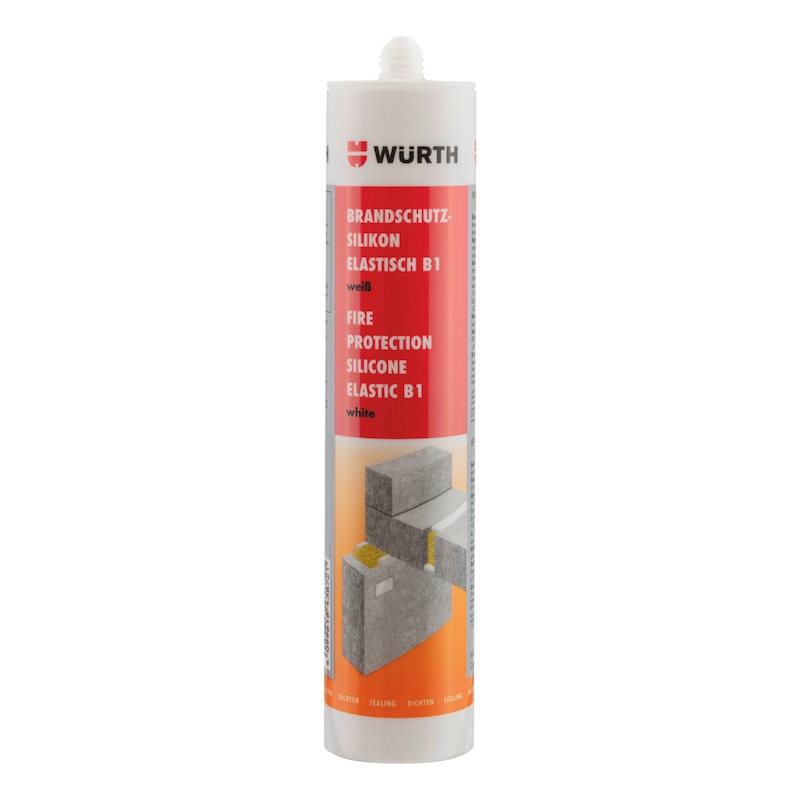For detailed information, other images and documents, please select individual articles from the following table.
Elastic fire protection silicone (B1)
Flame-retardant (B1) fire protection silicone for sealing fire protection joints between mineral components
Register now and access more than 125,000 products

Variants
Register now and access more than 125,000 products
Single-component, elastic, silicone-based sealant that is easy to apply and suitable for use on construction sites
- Building material class B1
- Low odour, resistant to ageing and weathering
- High UV resistance
- Good adhesion, even to metals and various plastics
- Compatible with copper
- Features fungicide
- Neutrally curing - MEKO-free
- Compatible with coatings (in accordance with DIN 52452-4)
The surface must be dry, load-bearing and free from dust and grease. Porous surfaces (e.g. concrete, plasterboard, bare wood) must be pre-treated with primer. The sealant must only be subject to two-side adhesion. Calculate the joint width to joint depth ratio in accordance with DIN 18540.
Cut the cartridge nozzle according to the joint dimensions. Apply the sealant to the joint using a suitable manual or cordless gun, ensuring there are no bubbles, and then smooth if necessary using a neutral, non-staining, aqueous smoothing agent and a suitable smoothing tool. Smoothing improves the contact between sealant and the adhesive surfaces. Remove excess smoothing agent immediately to avoid permanent streaks.
One cartridge (310 ml) is sufficient for a joint length of approx. 12 m (5x5 mm) or 3 m (10x10 mm). Curing depends on the temperature, humidity and layer thickness. The specified data refers to testing in standard conditions (23 °C/50 % relative humidity). Under these conditions, a 10 x10 mm joint will cure completely within 8 to 14 days. Low temperatures, low humidity and joint depths over 15 mm slow down the skin formation and curing processes, considerably in some cases. The characteristic data is determined within a narrow time frame for production and may vary slightly with increasing age of the product and different colouring. The characteristic data does not constitute a specification agreement.
General construction test certificate P-MPA-E-24-505
This product is subject to the provisions of the German Chemicals Prohibition Ordinance (Chemikalienverbotsverordnung). Detailed information on the hazards arising from this product, the precautionary steps to be taken during proper use, dealing with spillages or other exposure and ensuring correct disposal can be found in the safety data sheet.
For use in system [J2] + [L]
- Joint system RP55 [J2]
- Joint system P [L]
For sealing joints for flue gas tightness, in the case of fire protection partitions.
- For sealing joints for flue gas tightness, in the case of fire protection partitions.
- Between sheet metal and/or solid mineral building materials
- For sealing fire-retardant glass
Select RAL-colour code
!! NOTE: On-screen visualisation of the colour differs from real colour shade!!







